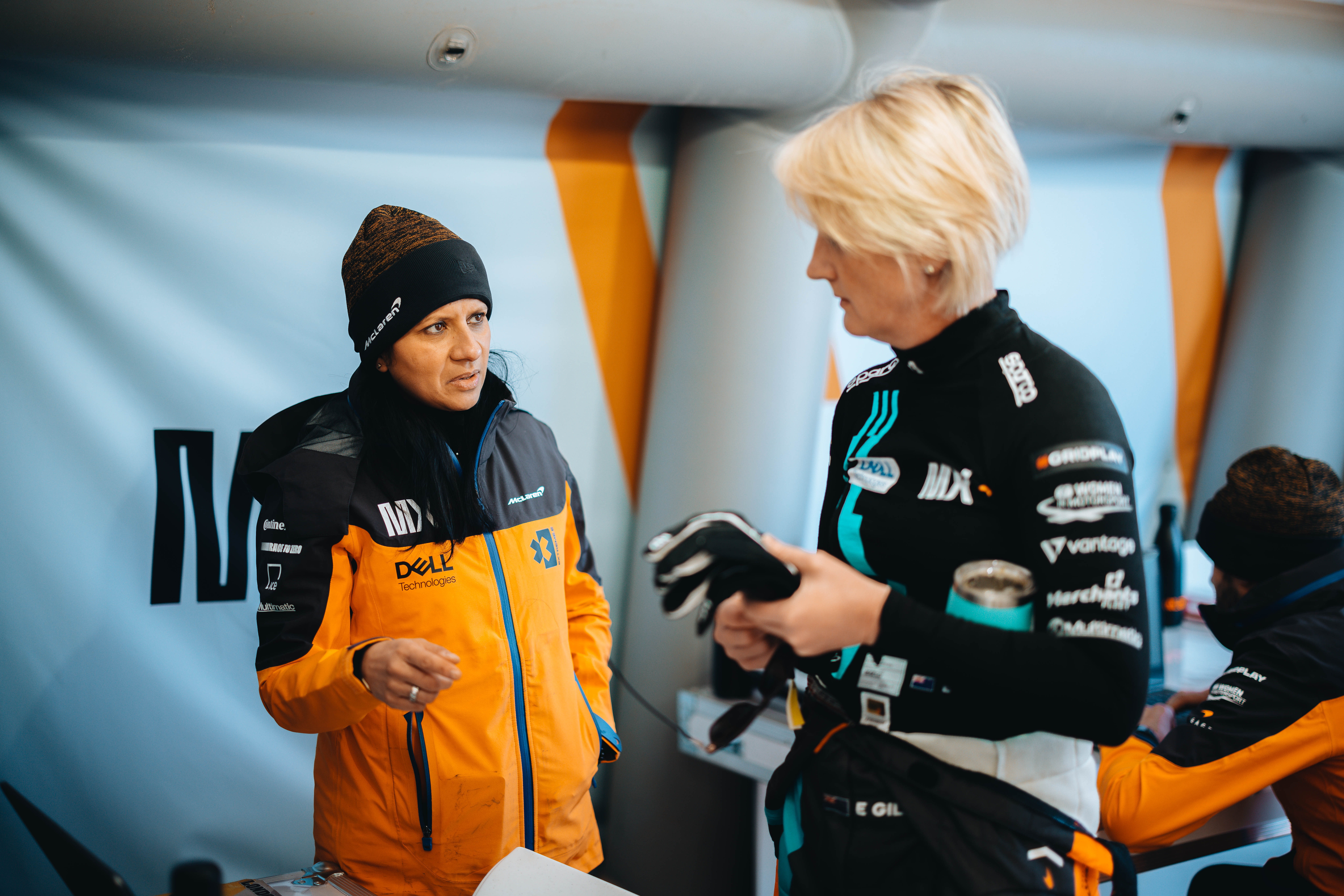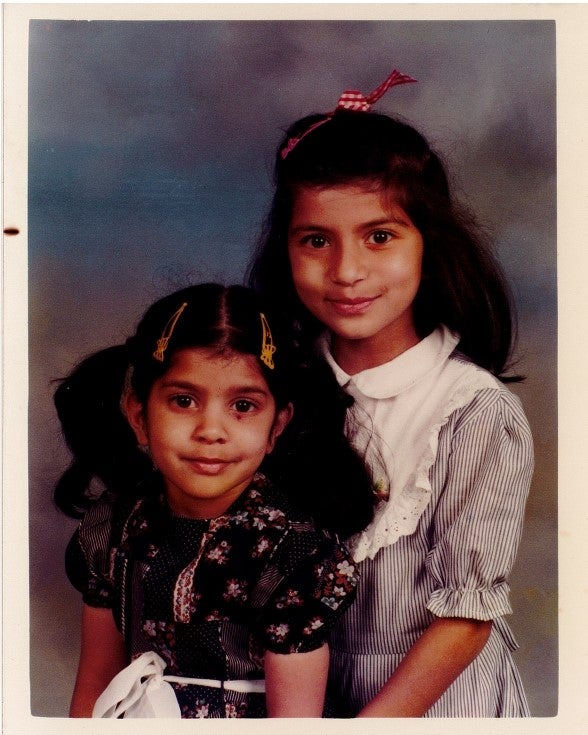McLaren sisters Leena and Teena Gade: ‘I don’t see myself as a woman in motorsport. I’m an engineer’
On International Women in Engineering Day, the sisters discuss how their mere presence in the paddock could be a life-changing picture for a budding engineer

Your support helps us to tell the story
From reproductive rights to climate change to Big Tech, The Independent is on the ground when the story is developing. Whether it's investigating the financials of Elon Musk's pro-Trump PAC or producing our latest documentary, 'The A Word', which shines a light on the American women fighting for reproductive rights, we know how important it is to parse out the facts from the messaging.
At such a critical moment in US history, we need reporters on the ground. Your donation allows us to keep sending journalists to speak to both sides of the story.
The Independent is trusted by Americans across the entire political spectrum. And unlike many other quality news outlets, we choose not to lock Americans out of our reporting and analysis with paywalls. We believe quality journalism should be available to everyone, paid for by those who can afford it.
Your support makes all the difference.No one ever asks Lando Norris what it’s like to be a man at McLaren.
Sisters Leena and Teena Gade, on the other hand, are always ready to rattle off their respective stock answers. The British engineers boast decades of experience between them, from F1 to rally, endurance and IndyCar, yet people often seem more interested in their gender than their expertise.
Thursday marks International Women in Engineering Day but Leena, Senior Principal Race Engineer for McLaren’s Extreme E team, is frank when it comes to the incessant enquiry.
“It’s so annoying,” said the elder Gade, who in 2011 became the first female race engineer to win 24 Hours of Le Mans, with repeat success in 2012 and 2014.
“It’s like asking you to walk on the moon. You’ve got absolutely no idea, because I don’t see myself as a woman in motorsport. I’m an engineer first and foremost. When I wake up in the morning, the way I think, the way I operate, I’m an engineer. It’s a little bit frustrating that people focus on that, rather than the engineering side of things, which is far more interesting and far more exciting.”
Teena, who works alongside her sister as the team’s performance and systems engineer, is slightly more diplomatic. She’s worked across the sport, most recently with Torro Rosso/Alpha Tauri as a vehicle dynamics engineer with previous stints at Force India and Williams.
“It’s unfortunately an important question to ask,” she admits. “There are very few females in engineering, and in most sports, so it’s a natural question for people to ask.
“It’s important for the younger generation, if there are kids out there that want to get into motorsport, be they male or female, young boys need to understand that engineering is a normal vocation for females to take, and likewise females need to know it’s one they can have without any prejudice because of their gender.”
A March 2022 report by Engineering UK showed an increase in the number of women working in the sector, from 10.5% in 2010 to 16.5% in 2021.
And Engineering Council data revealed that young people who attended a STEM careers activity in the previous 12 months were over three times as likely to consider an engineering career than those who had not.
Last year, as part of its legacy projects—undertaken in each of Extreme E’s race destinations—the series partnered with the FIA’s Girls on Track programme to bring girls from around Dorset for an interactive, behind-the-scenes look at the all-electric rally’s STEM setup, where they met and learned from race doctors, engineers and drivers.

The Gades spent part of their childhood in their parents’ native India, where they grew fascinated by how things worked, spending hours taking things apart and putting them back together again.
Motorsport came later, when they moved back to the UK, and Teena’s friends got the sisters hooked on F1. Still, their parents were hesitant.
“It became more and more apparent to our parents that we wanted to go into motorsport as a career,” said Leena.
“My dad had once said to us, ‘It’s not for people like us’. And what he really meant by that was having moved over to the UK in the 1960s, he had suffered a lot of racism. It was a different generation. He was an architect, he struggled a little to find work. My mum was the same. She came over as a microbiologist and never worked in it.
“They were a little bit apprehensive at first but they realised there is a steamroller in the house with the two of us wanting to do it, they didn’t hold us back. They said, ‘if you’re going to do it, do it properly and be successful.’”
It’s why both women, despite being tired of answering The Question, acknowledge their mere presence in the paddock could be a life-changing picture for a budding engineer.
“Even if they don’t have a parent in STEM,” said Teena, “give them a role model, a teacher, someone like that who can provide that, give them that passion so they can go off and do it. That applies whether they’re a minority, white, it needs to be clear for all children.”
Added Leena: “I think things have changed a lot since we got into motorsport, got interested in engineering.
“There are lots of organisations trying to show that there are careers possible for any background. Whether you’re male or female, the colour of your skin shouldn’t matter, your financial background shouldn’t matter.
“They’re all a step in the right direction. It’s a process and it takes time.”
Join our commenting forum
Join thought-provoking conversations, follow other Independent readers and see their replies
Comments